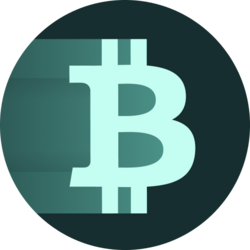
RSK Infrastructure Framework Price (RIF)
$0.080455
1.14%
RSK Infrastructure Framework Price Chart (RIF/USD)
Last updated 02 Aug 2023, 14:15PM UTC. Currency in USD.
Markets
| # | Exchange | Pair | Price | Spread | Volume(24h) | Trust |
|---|---|---|---|---|---|---|
| 1 |
|
RIF / USDT | $0.09123000 | 0.22% | $1,119,884 | |
| 2 |
|
RIF / USDT | $0.11587600 | 0.35% | $198,128 | |
| 3 |
|
RIF / USDT | $0.08046200 | 0.37% | $111,664 | |
| 4 |
|
RIF / USDT | $0.12584100 | 0.40% | $99,466 | |
| 5 |
|
RIF / BTC | $0.08725600 | 0.34% | $84,358 | |
| 6 |
|
RIF / USDT | $0.08203800 | 0.15% | $42,721 | |
| 7 |
|
RIF / USDT | $0.07811900 | 0.64% | $23,780 | |
| 8 |
|
RIF / BTC | $0.08069000 | 0.58% | $12,226 | |
| 9 |
|
RIF / USDT | $0.12976000 | 0.69% | $10,905 | |
| 10 |
|
RIF / USDT | $0.08228900 | 0.49% | $7,265 | |
| 11 |
|
RIF / USDT | $0.05355200 | 0.52% | $5,830 | |
| 12 |
|
RIF / USDT | $0.06477700 | 0.15% | $5,105 | |
| 13 |
|
RIF / ETH | $0.04219808 | 2.40% | $3,215 | |
| 14 |
|
RIF / BTC | $0.04304398 | 0.35% | $1,774 | |
| 15 |
|
RIF / USDT | $0.09510200 | 1.26% | $39 | |
| 16 |
|
RIF / BTC | $0.10137700 | 0.89% | $976 | |
| 17 |
|
RIF / USDT | $0.07770500 | 0.13% | $830 | |
| 18 |
|
RIF / BTC | $0.05427500 | 1.53% | $749 | |
| 19 |
|
RIF / BTC | $0.08677900 | 0.35% | $433 | |
| 20 |
|
RIF / USD | $0.05380000 | 1.28% | $430 | |
| 21 |
|
RIF / BTC | $0.05610400 | 0.50% | $260 | |
| 22 |
|
RIF / USDT | $0.17040800 | 0.35% | $243 | |
| 23 |
|
RIF / BTC | $0.06188200 | 59.02% | $2 | |
| 24 |
|
RIF / USDT | $0.03800967 | 56.09% | $1 |
RIF Price Statistics
- RSK Infrastructure Framework Price Now $0
- 24h Low / 24h High $0 / $0
- Trading Volume $1,444,469
- Market Cap Rank #300
- Market Cap $78,222,786
- Volume / Market Cap 0.0185
-
All-Time High
$0 -82.34%
Apr 12, 2021 -
All-Time Low
$0 780.18%
Jun 12, 2019
Most Visited Cryptocurrencies
RSK Infrastructure Framework (RIF) and Its Impact on Cryptocurrency
Introduction
The RSK Infrastructure Framework (RIF) is a groundbreaking platform that aims to revolutionize the world of cryptocurrency and blockchain technology. Built on top of the RSK network, RIF offers an extensive suite of decentralized infrastructure services designed to enhance scalability, interoperability, and usability for developers and users alike.
Benefits of RIF
RIF provides several key benefits that make it stand out in the cryptocurrency landscape. Firstly, it offers enhanced scalability through the utilization of RSK sidechains. These sidechains allow for faster transaction processing and increased network capacity, solving one of the main limitations of traditional blockchains.
Secondly, RIF focuses heavily on interoperability. It provides a range of cross-chain communication protocols, enabling seamless interaction between different blockchains. This creates a more connected ecosystem, allowing developers to build decentralized applications (dApps) that can leverage the strengths of multiple blockchain networks.
Moreover, RIF aims to improve the usability of cryptocurrencies by providing user-friendly solutions. Its infrastructure services include domain name systems (DNS), storage services, and payment channels, making it easier for individuals and businesses to adopt and utilize cryptocurrencies in their daily lives.
The Roles of RIF Tokens
The RIF platform operates on its native utility token, also called RIF. These tokens have multiple uses within the ecosystem. For instance, they are used to pay for transaction fees, deploy and interact with smart contracts, and access various services provided by the RIF infrastructure.
Beyond their utility, RIF tokens also act as a means of participating in the governance of the RIF ecosystem. Token holders have the power to vote on protocol upgrades, changes, and proposals, ensuring a decentralized decision-making process that aligns with the interests of all stakeholders.
Real-World Applications
The RIF Infrastructure Framework has a wide range of applications across various industries. For instance, it can revolutionize supply chain management by providing transparent tracking and tracing of goods using blockchain technology. It can also disrupt the financial sector by facilitating peer-to-peer lending, remittances, and cross-border transactions without the need for intermediaries.
Furthermore, RIF can empower the Internet of Things (IoT) by enabling secure and decentralized communication between devices. By utilizing RIF's infrastructure services, IoT devices can seamlessly interact and exchange data, opening up endless possibilities for automation and smart technology implementation.
Conclusion
The RSK Infrastructure Framework (RIF) is poised to transform the cryptocurrency and blockchain landscape. With its focus on scalability, interoperability, and usability, RIF offers a comprehensive solution for developers and users seeking to harness the true potential of blockchain technology. Through its various applications in sectors such as supply chain management, finance, and IoT, RIF has the potential to revolutionize industries around the world.
 Tellor (TRB)
Tellor (TRB) Lombard Staked BTC (LBTC)
Lombard Staked BTC (LBTC) USDtb (USDTB)
USDtb (USDTB) UGOLD Inc. (UGOLD)
UGOLD Inc. (UGOLD) USD Coin (USDC)
USD Coin (USDC) dYdX (DYDX)
dYdX (DYDX) Polygon Bridged USDT (Polygon) (USDT)
Polygon Bridged USDT (Polygon) (USDT)